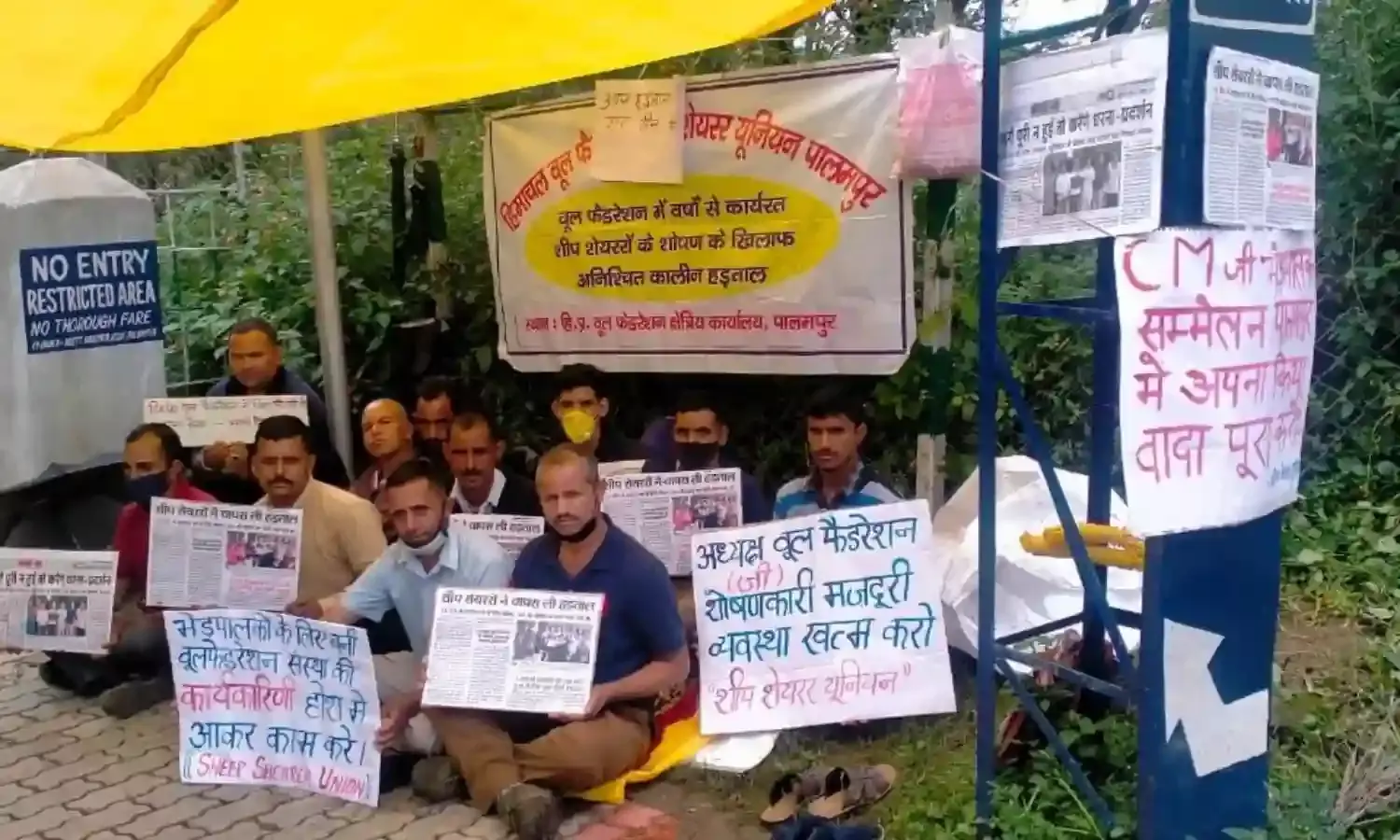Bad Hair Day for Himachal Sheep as Shearers Go On Strike
Demanding job security;

The hill state of Himachal Pradesh has a woolly problem on its hands. There is an acute shortage of workers with the skill to shear its large number of sheep and goats. Making matters worse for the pastoral community is a strike by around 15 trained shearers of the Himachal Pradesh State Wool Federation who want contracted employment so they can make ends meet.
According to social activist Akshay Jasrotia who has been working with the pastoral community for several years, there is little public data on the pastoral communities in the state. “The last livestock census says there are one lakh plus families rearing sheep and goats in the state. However, how many of these are migratory pastoralists and how many stay put at one place is not demarcated.”
“The state has around eight lakh sheep and eleven lakh goats. What comes as a shock is that the Wool Federation has just three shearers on its rolls, while the remaining 15 engaged by it work on a paltry commission of Rs 10 per sheep. One shearer can work on 40 sheep a day only,” he explains.
Strikes by these 15 shearers have become a regular feature as all they have received is assurances from the government.
“If the government is keen on addressing our concerns it should give us something concrete in writing. We have taken our case right up to the office of the Chief Minister,” said Malber, secretary of HP Wool Federation Sheep Shearer Union.
Pastoralists and shearers have been pointing out that the work of shearing is extremely tough and is performed in village pastures and forests out in the open under the threat of weather playing truant. It is dependent also on the availability of electricity and other limitations.
Besides being paid lower remuneration than what they can earn at their native places, the shearers say they have no security when they have to travel to remote areas in difficult terrain. They have to carry shearing equipment weighing no less than 30 kg on their backs as they move on foot. The task becomes all the more arduous in the winter months. They say they are not paid during the days lost in travel or during the months when there is no work.
In the memorandums they submit to the state government from time to time they underline, “For the foregoing reasons, the private sheep shearers are demanding job security.”
Since the under-hiring of shearers leaves them unable to take care of more than one lakh animals, it is left to the pastoralists to fend for themselves when it comes to the remaining goats and sheep.
“But even here there is a big problem, since the traditional kaat (tools) are not available easily and they have to rely on crude methods. To make things worse the Wool Federation does not procure the entire wool produce. Himachal is producing around 16 lakh kg of wool every year while the procurement does not go beyond 1 lakh kg,” said Jasrotia.
Officials at the Federation have a sympathetic view.
“The machines and equipment needed for shearing are imported from places like Switzerland, Britain, Australia, New Zealand and China. The cost is high and it is not viable for pastoralists to purchase such equipment as the sheep economy in India is not like that in these countries,” an official told The Citizen.
“Secondly these equipment and machines are procured under various schemes and projects of the Government of India that are subsidised. These subsidies take care of the manpower as 70% benefits are passed on to shearers,” he claimed.
He further said that scarcity of shearers is an issue in almost all the wool producing states including Himachal Pradesh, Uttarakhand and Rajasthan. The reason is that shearing is a highly professional task with very little remuneration and no one is keen to take up this vocation.
According to Jasrotia, erstwhile Jammu and Kashmir has a proper system in place to manage its approximately 35 lakh sheep and goat. He said Himachal needs to follow its model to boost its Rs 4,000 crore sheep economy.
As for procurement, officials in the state said that shearing is carried out simultaneously across the higher regions. Pastoralists have the option of contacting the Federation for procurement but the procurement rates are fixed at Rs 71.50 per kg. If the pastoralists get a better deal, they sell it on the spot. The officials pointed out that the whole set is decentralised and very complex.
“The continuous movement of the migratory community makes it all the more complicated as they cannot stop at one place for more than a fortnight,” said an official.
The strike by shearers delays the process of shearing and this has a long cascading impact on operations. Officials said that with a small number of shearers available, teams have to be constituted to move to remote places in Kinnaur, Kullu, Kangra and Chamba. This movement itself takes a lot of time.
It is being pointed out that for these reasons, the population of sheep has been on the decline. The state should pump in more funds so that shearing operations can be increased according to the demand.
There is a view that sustainable and natural farming in the livestock sector should be promoted as an alternative, and steps taken by the state for ‘organic certification’ to open up markets and enhance the income of the pastoral community, as the alpine pastures of Himachal are abundant with grasses and rare herbs of medicinal value.
If shearers are given regular appointments, observers say, their services can also be taken for grading, procurement and packaging of wool when there is no shearing to be done. They can also carry out other works like handling of veterinary medicines and upkeep of premises.

